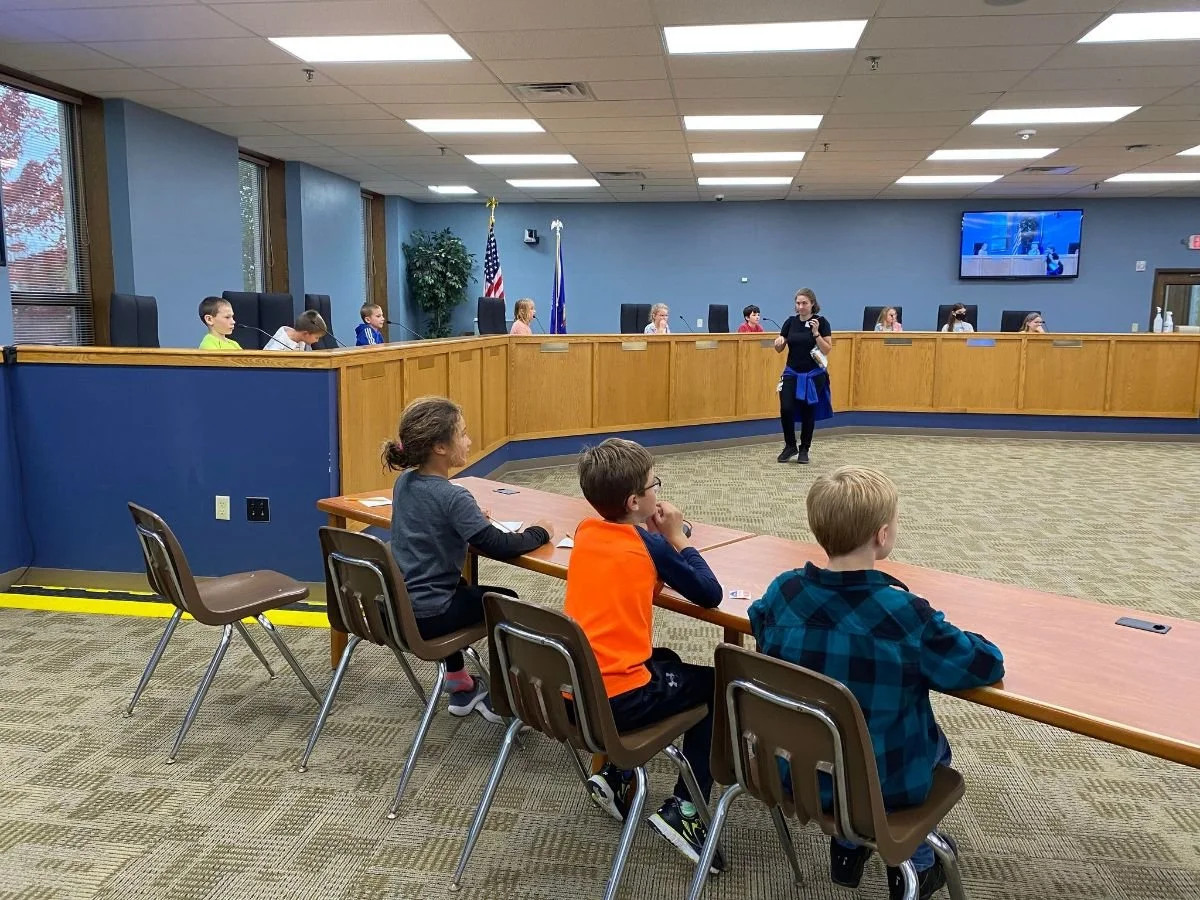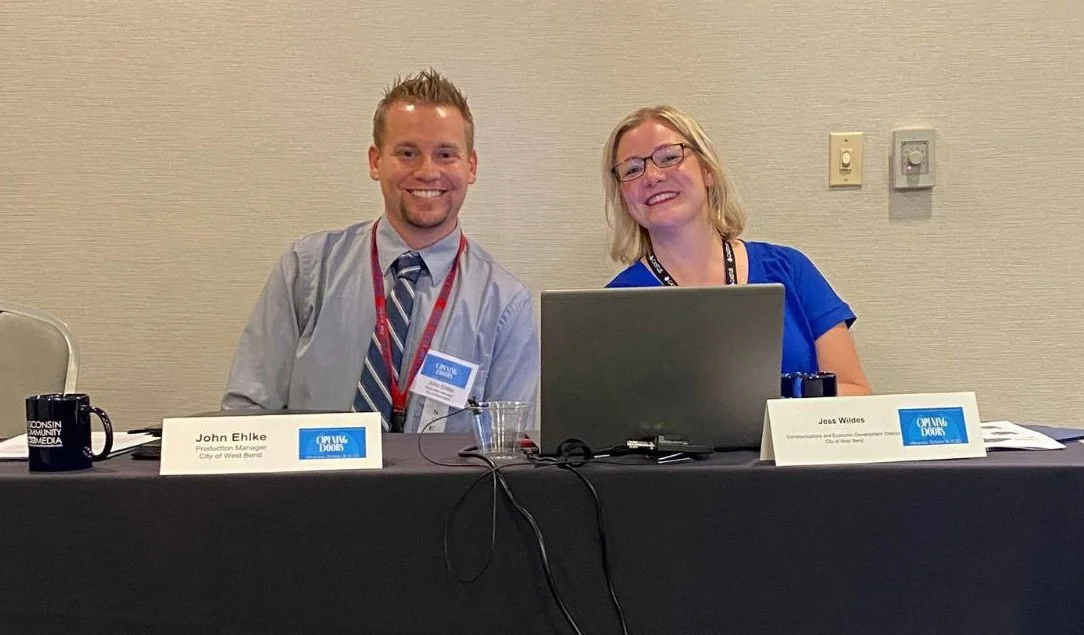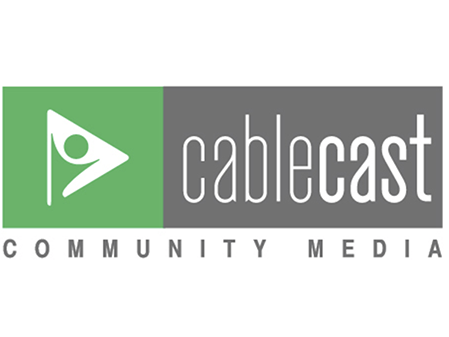One of the oldest PEG (public, education, government) media centers in the state, West Bend Community Television (WBCTV) is a service of the City of West Bend, which has a long history of serving the communication needs of the city, the school district and its residents. With the leadership of the station about to change for the eighth time in 43 years, it’s a good time to reflect on the people and the investments that have steadily built WBCTV into the successful media production center that it is today.
The City of West Bend signed its first cable TV franchies agreement in 1979 during a period when small and medium-sized municipalities were negotiating for cable at a rapid pace. While operators were offering a growing number of program services, in 1979, only 28 cable TV networks existed, and operators offered these along with local broadcast channels and space for local PEG access television channels that the community itself could program. The City of West Bend wanted to provide greater access to its meetings, so it negotiated for two PEG channels. A committee consisting of seven community representatives was appointed by the mayor to help launch the station.
Initially, West Bend Community Cable TV (WBCCTV) was housed in the Badger Middle School basement. The city hired a part-time coordinator and found used equipment to get the station off the ground. The channels carried common council and school board meetings and one or two new studio programs every month. But just a few months later in 1980, the city hired a full-time coordinator, Mark Landvatter. Mark, who oversaw the station for six years and still serves on the cable committee, was followed by Lisa Branston, who managed the station for two years. During the early years the city improved its production and playback capability with new equipment and expanded programming.
In 1988, Diane DuKatz took over management and during her seventeen-year tenure, there were many changes and improvements. The first new investment was an automatic playback system that allowed WBCCTV to present programming on the weekends. In 1991, the station moved to the first floor of the newly renovated city hall and a number of equipment upgrades were made to improve production quality and expand playback hours. In 1992, a direct line was installed to the cable company to improve the signal for live productions from the studio and council chambers. In 1994, Plan Commission meeting coverage was added and in 1995 a three-camera system was installed in the common council chambers, giving meeting coverage and voter forums a professional look.
In 2006, Mike Ryan became the fifth coordinator. Mike made upgrades to the council chambers and guided the station through its transition from analog to digital production and playback. Mike’s significant contribution to community media was honored in 2021 when he was inducted into the WCM Hall of Fame. Upon Mike’s retirement in 2018, Padrick Dunn took the reins and oversaw the purchase of new production equipment, including 4K cameras and a drone. Padrick hired John Ehlke in 2019, who has shepherded the station for the last three years.
In 2020, WBCTV expanded to become a full Communications Department. Jess Wildes, Communications and Economic Development Director, leads the seven-person department. The team serves as a centralized resource for information and media services for the community as well as the City of West Bend. It encompasses WBCTV, social media, public relations, marketing, emergency communications, and tourism promotion.
“The staff is at the core of WBCTV,” said Jess. “It manages the schedules for two cable channels, produces programs, and continually develops new ways to tell stories in the community—specifically through “Business of the Month” videos and “The City” episodes.”
WBCTV’s Community Channel is on Charter’s Spectrum Cable channel 987 and AT&T U-verse channel 99. This channel carries live coverage of government meetings including Common Council, Plan Commission, Downtown Business Improvement District (BID) Board, Library Board, and Parks and Recreation Commission. The channel also carries programs about community events and municipal government.
The School Channel is on Spectrum channel 986 and AT&T U-verse channel 99. This channel gives residents an opportunity to watch local school board meetings along with recorded and live high school sports.
Both the Community Channel and the School Channel can be viewed on WBCTV’s on-demand site and YouTube. WBCTV has seen tremendous growth in video streaming since the spring of 2020 when a lockdown was instituted due to the pandemic. In response, WBCTV transitioned to meet the needs of its community by broadcasting meetings, sports, and concerts in virtual and in-person settings. It also produced many public service announcements about election procedures, policy changes, and patronizing local businesses.
“John helped further the movement to humanize local government through his video work,” said Jess. After three years of service to WBCTV, John recently accepted a new position as station manager for Independence Television in his hometown in Michigan.
“We are thankful for the time we had with John on our team. He took our programs and videos to the next level,” said Jess. “We wish him and his wonderful family well as they move home to Michigan!”
Like all WBCTV managers who have led the media center over the last forty-three years, John leaves behind a strong legacy and a bright future for WBCTV.

















